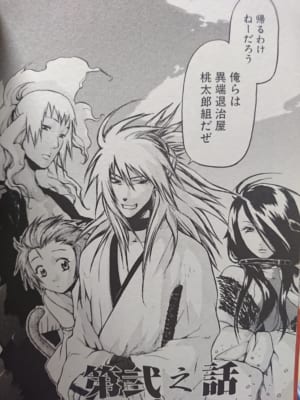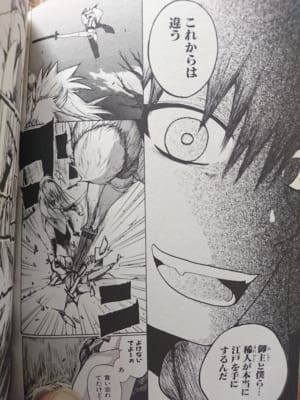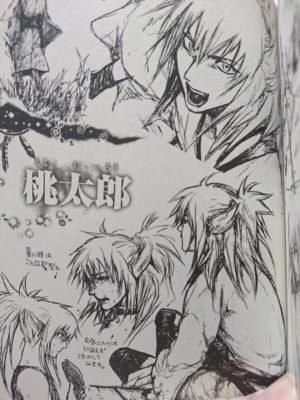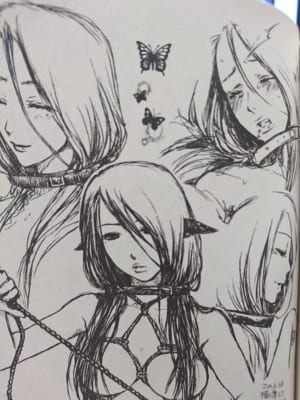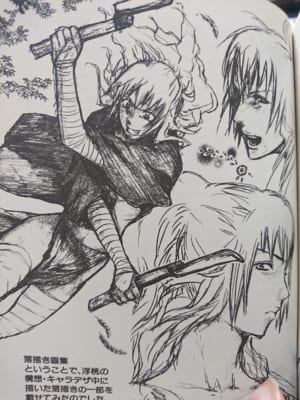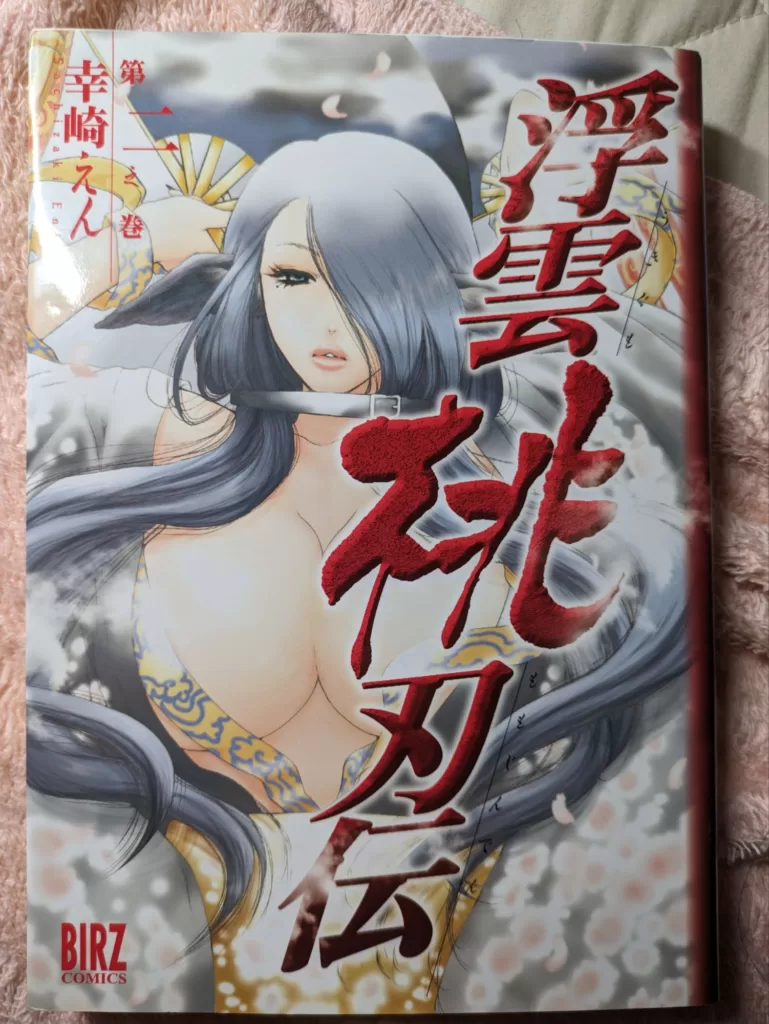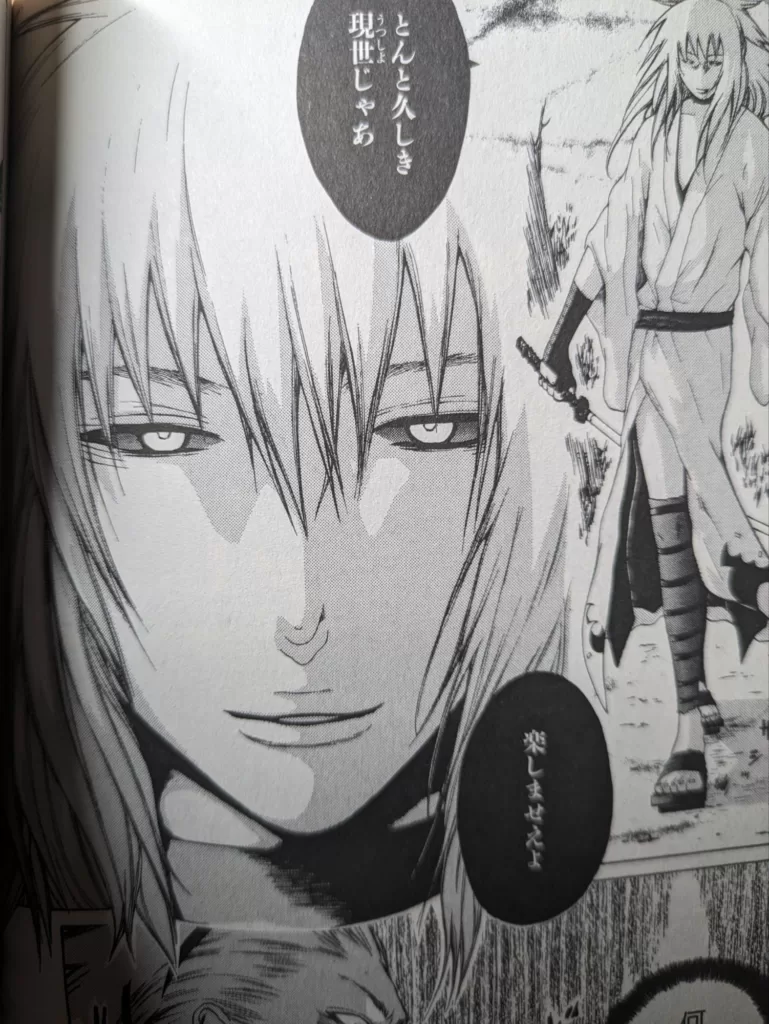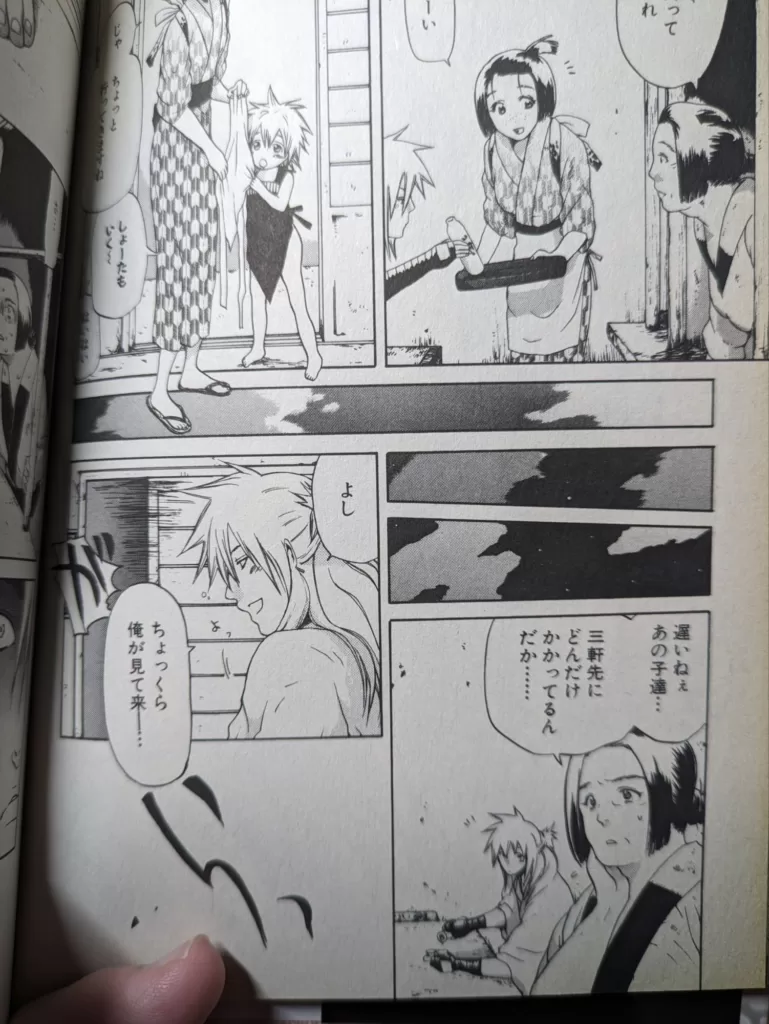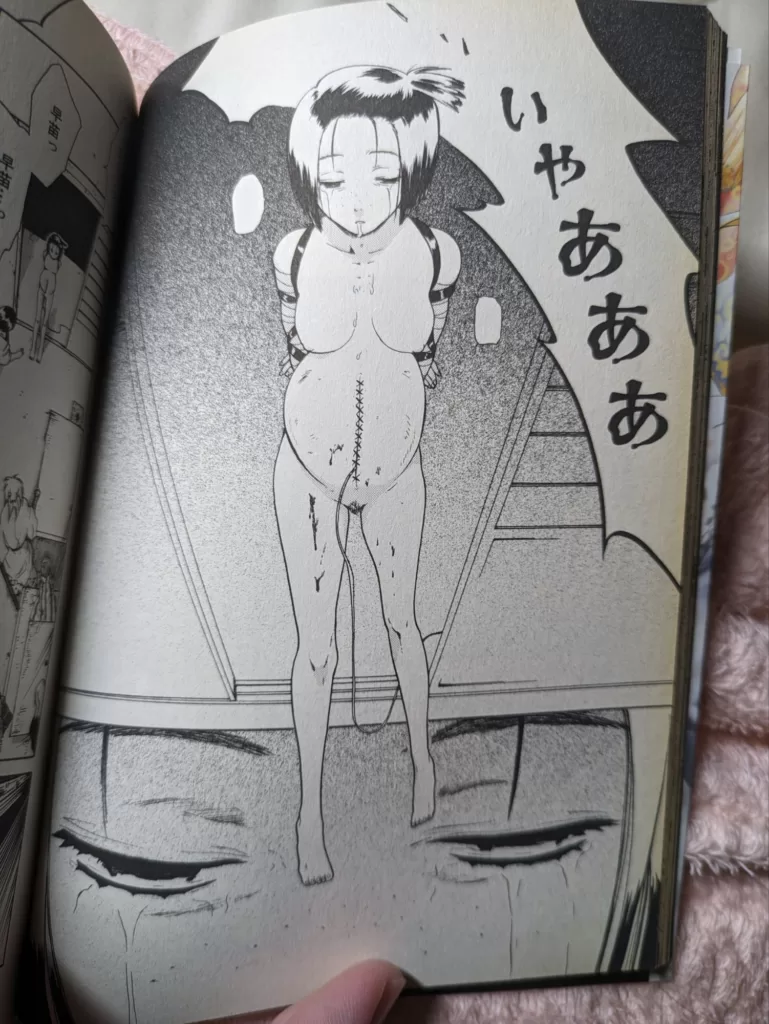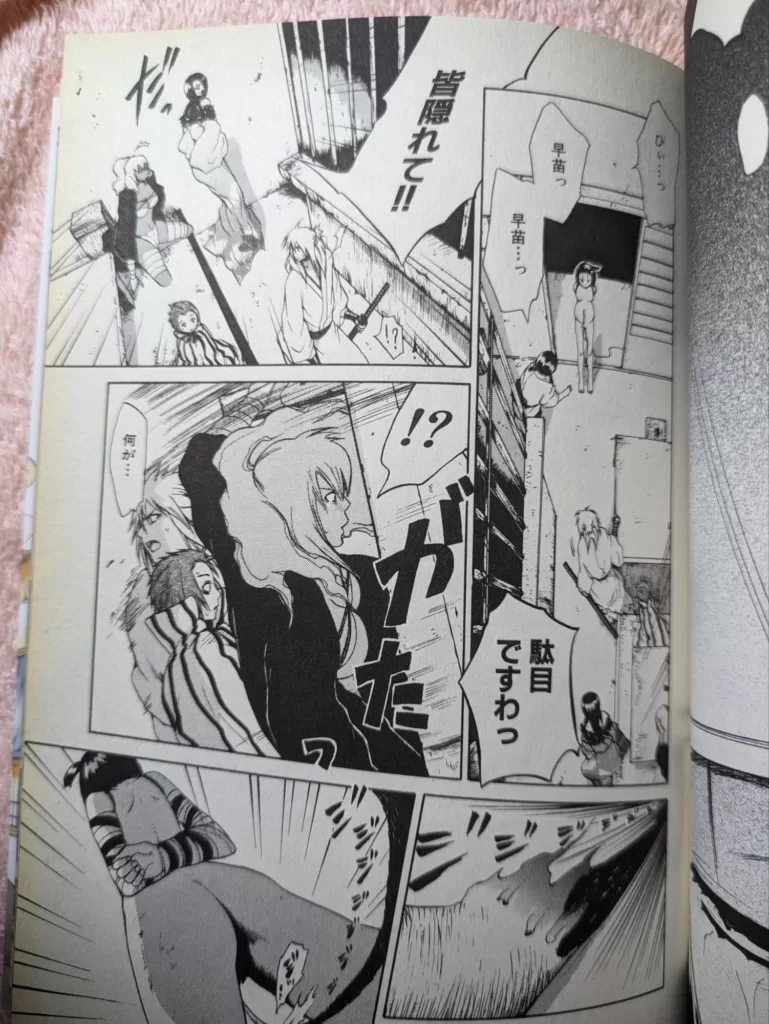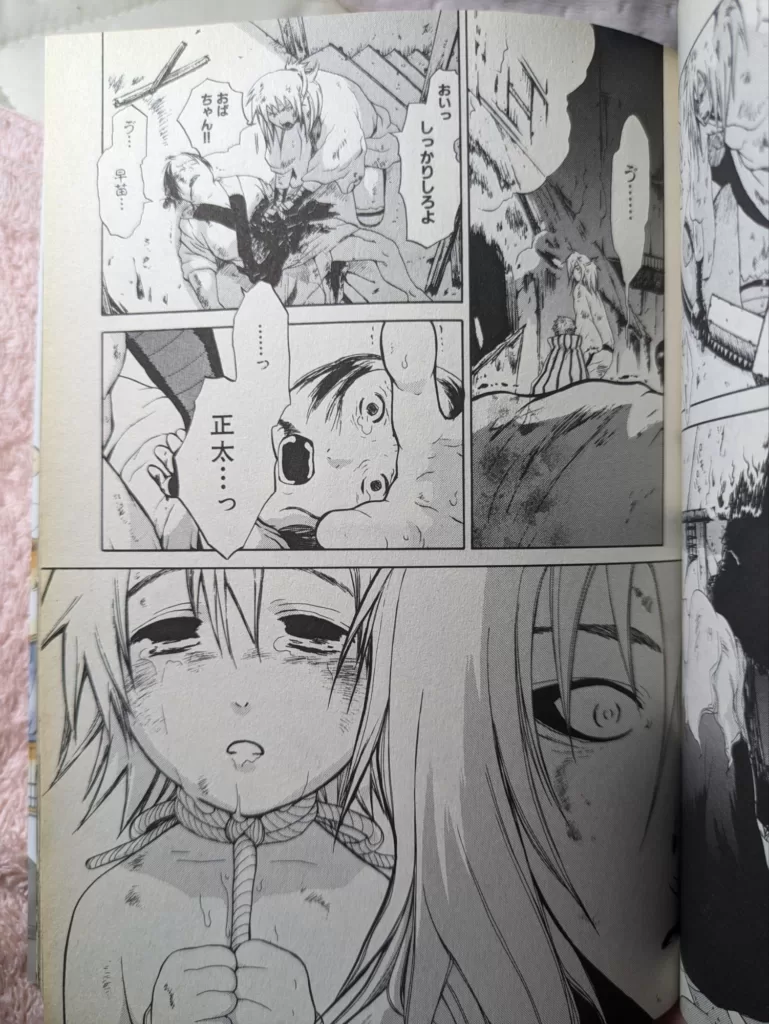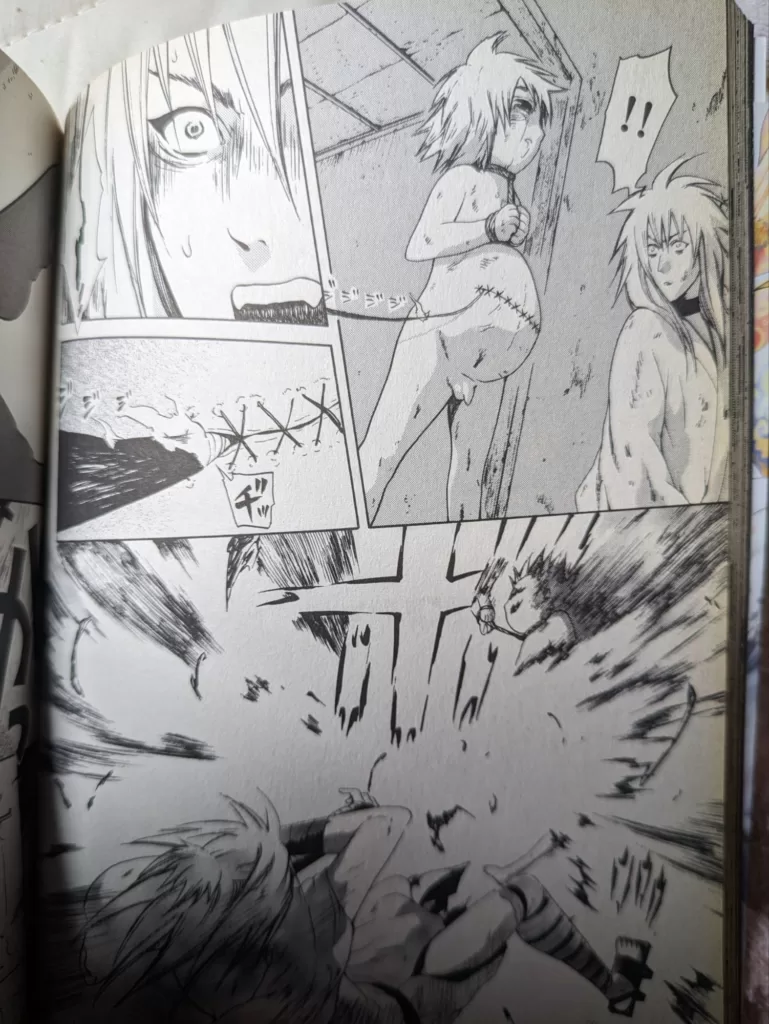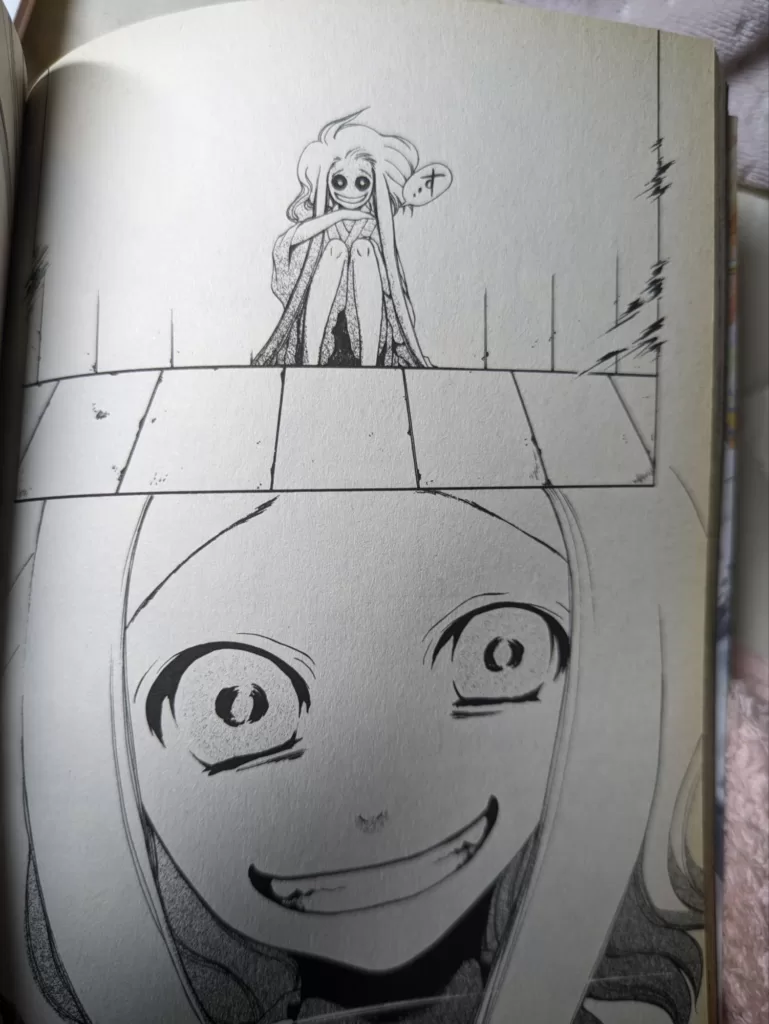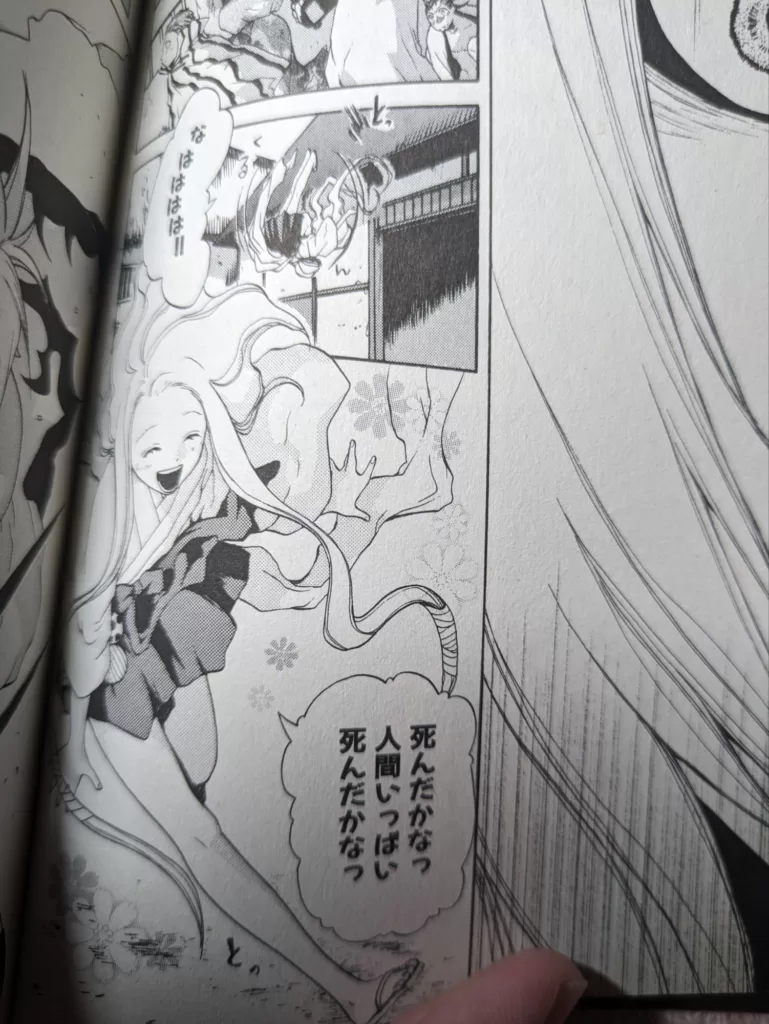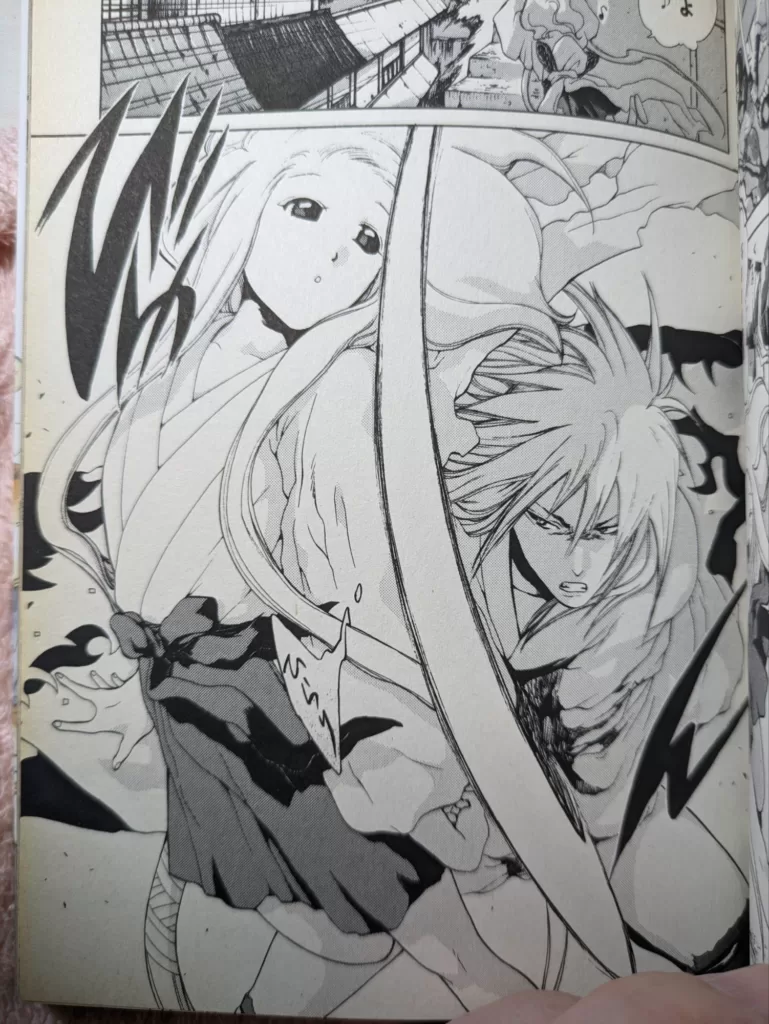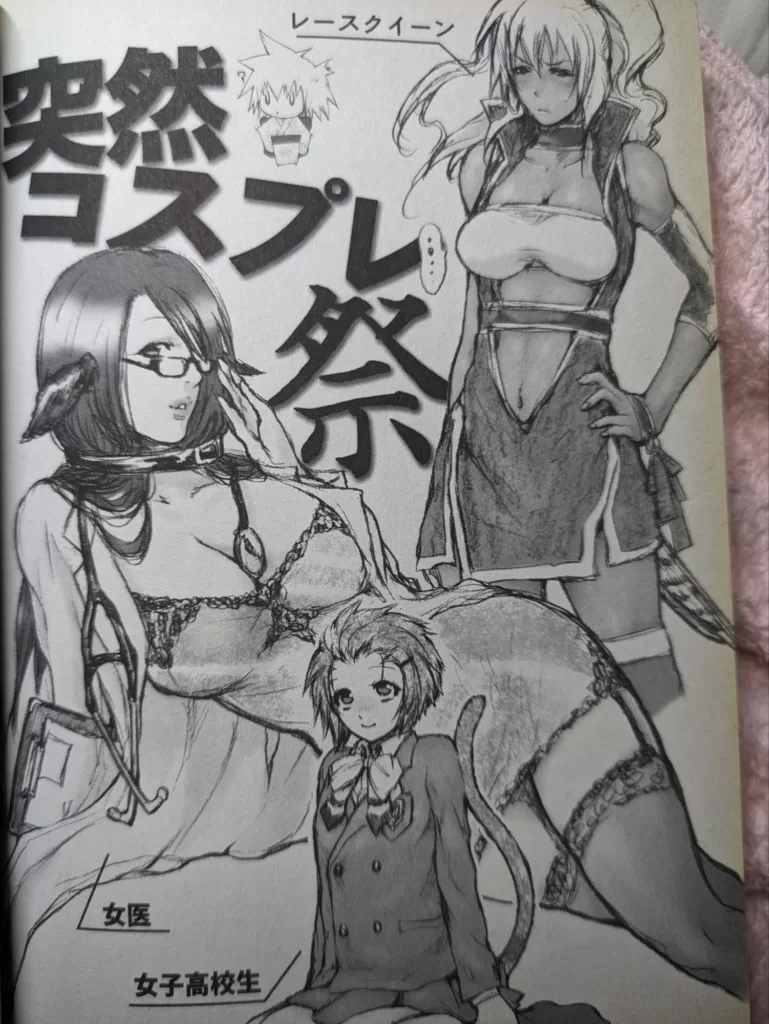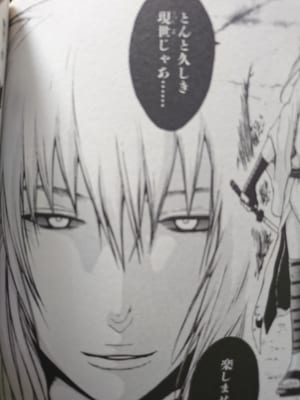浮雲桃刃伝
The text describes a Japanese manga that is an adaptation of the classic Japanese folktale “Momotaro”. In the world of Japanese manga, it’s common to reinterpret and arrange original works, and this manga is an example of such a practice, featuring typical stylistic adjustments found in Japanese manga.
Key elements of this work include:
- The Main Character’s Dual Personality: When cornered, the protagonist reveals a strong, hidden personality.
- Anthropomorphized and Gender-Swapped Companions: Unlike the original Momotaro story, which includes a dog, a monkey, and a pheasant as Momotaro’s followers, this adaptation features these characters as anthropomorphized and gender-swapped.
- Artistic Style: The manga’s art and tone are reminiscent of Hiroto Iguchi’s style, suggesting that fans of his work might find this manga interesting.
- Storytelling Critique: The storytelling is criticized for lacking originality and failing to resonate emotionally with the readers. The highlight of the manga, according to the commentary, is not the main story but the afterword by the author, which reveals the author’s personal tastes and passions.
- Violent Content as a Marketing Strategy: The manga employs violent imagery to captivate the audience, a common strategy in various media worldwide, including Hollywood movies. Such content seems to have enduring appeal, as evidenced by continued searches for this relatively obscure and older manga, particularly for the term “human bomb.”
- Appeal of the Manga: Despite its emphasis on brutality, the manga is noted for its strong portrayal of female characters, with their beauty being comparable to that of major titles.
- Author’s Career: The author, En Kosaki, after this work, continued to create manga based on original works but hasn’t released any new volumes since, leading to speculation that they may have retired from manga creation.
- Potential Wasted Due to Lack of Proper Editorial Guidance: The narrative expresses regret that, with better editorial guidance, the author might have achieved greater success, indicating a belief in the author’s untapped potential.
